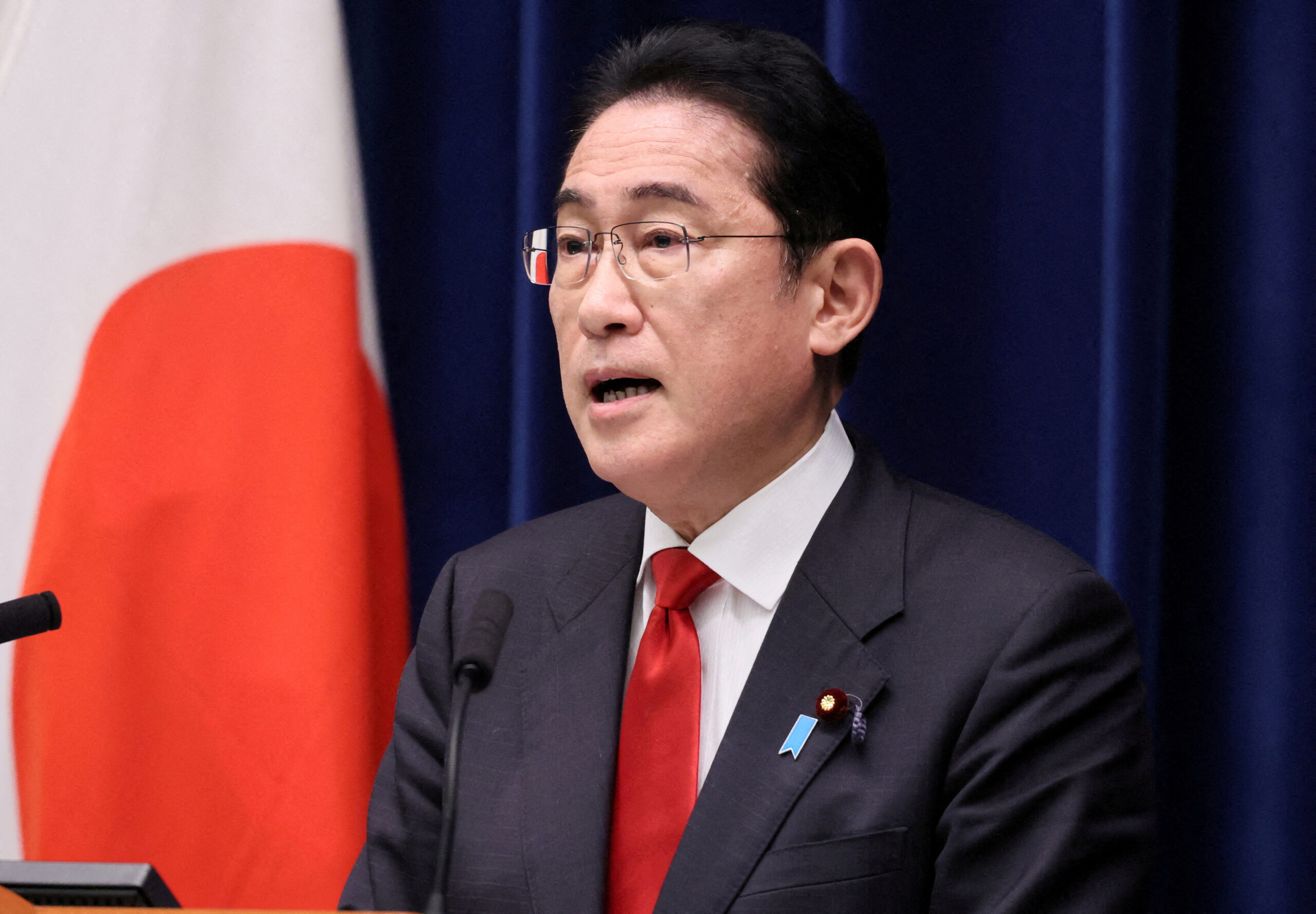Japan PM Kishida to address PH Congress in special joint session

FILE PHOTO: Japanese Prime Minister Fumio Kishida speaks about his parent policy at a press conference at his official residence in Tokyo on March 17, 2023. YOSHIKAZU TSUNO/Pool via REUTERS
MANILA, Philippines — Japanese Prime Minister Fumio Kishida will address a special joint session of the 19th Congress on Saturday, only the fifth time that the Philippine legislature is to accord such an honor to a visiting foreign leader.
Leaders of the Senate and the House of Representatives said they looked forward to listening to the message of Japan’s head of government, “as a robust trading partner, a strong security ally, a lending hand during calamities and an investor in Philippine progress.”
Asked about his expectations for the visit, Senate President Juan Miguel Zubiri said he hoped to discuss with Kishida the proposed Reciprocal Access Agreement (RAA) between the Philippines and Japan, a military accord that the Senate leader himself had raised during his two official visits to Tokyo earlier this year.
“[This will] allow both our troops [to] train in Japan and the Philippines for better cooperation and interoperability,” Zubiri told the Inquirer.
House as venue host
He said he also wanted to hear Kishida talk about possible financial aid for some big-ticket infrastructure projects that were canceled after the Department of Finance (DOF) opted to forgo the delayed loan negotiations with China.
“Let’s [allow] Japan [to] handle these projects [instead],” he said.
Speaker Martin Romualdez expressed optimism that Kishida’s visit would lead to “mutually beneficial” collaboration between the Philippines and Japan.
The joint session will be held at the House session hall in the Batasang Pambansa complex in Quezon City.
“The House of Representatives, as the honored venue host of this significant event, is committed to exerting all efforts to ensure that Prime Minister Kishida’s visit is both fruitful and memorable,” Romualdez said.
The Speaker added that the House members looked forward to Kishida’s speech “with great anticipation” as it is a “significant milestone in the strong diplomatic alliance” of the two nations.
“This visit, symbolizing the deep and longstanding bond our nations have forged, built on mutual respect, shared values, and a unified vision for peace, stability, and prosperity in the Asia-Pacific region, signifies the strength of our bilateral ties,” Romualdez said.
Kishida and his wife, Yuko, will arrive in Manila on Friday afternoon for a two-day official visit, including a bilateral meeting with President Marcos.
Congress is on a legislative break but will interrupt it for Saturday’s special session with the Japanese leader. It resumes its regular session on Monday.
Kishida’s scheduled speech is only the fifth time that a foreign leader would have the chance to address the two chambers in a special session, Zubiri said.
The first time, he said, was during the state visit in Manila of then-US President Dwight Eisenhower in 1960.
‘Common challenges’
Then presidents Pervez Musharraf of Pakistan and Hu Jintao of China addressed Congress in April 2005, while Avul Pakir Jainulabdeen Abdul Kalam of India did so in February 2006.
According to Zubiri, the Senate and the House will separately hold sessions at 9 a.m. on Saturday to pass a resolution officially inviting Kishida to address Congress. The senators will then proceed to the House for the Japanese leader’s address at 11 a.m., he said.
Zubiri said the Japanese leader’s state visit would further enhance the cooperation between the two countries “in confronting common challenges.”
Japan, which colonized the Philippines during World War II, remains the country’s biggest bilateral source of official development assistance (ODA), Zubiri noted.
From 2001 to 2020, he said, Japan brought in ODA projects amounting to $14.139 billion (about P7.77 trillion) based on data from the DOF.
“In fact,” Zubiri said, “during President Marcos’ visit to Tokyo this April, Japan pledged P250 billion in aid to the Philippines in the next two years to [help] the country in its bid to reach middle-income status by 2025.”
The Senate leader said he had proposed the signing of an RAA between the Philippines and Japan to improve their defense cooperation.
Both Tokyo and Manila are embroiled in maritime disputes with Beijing.